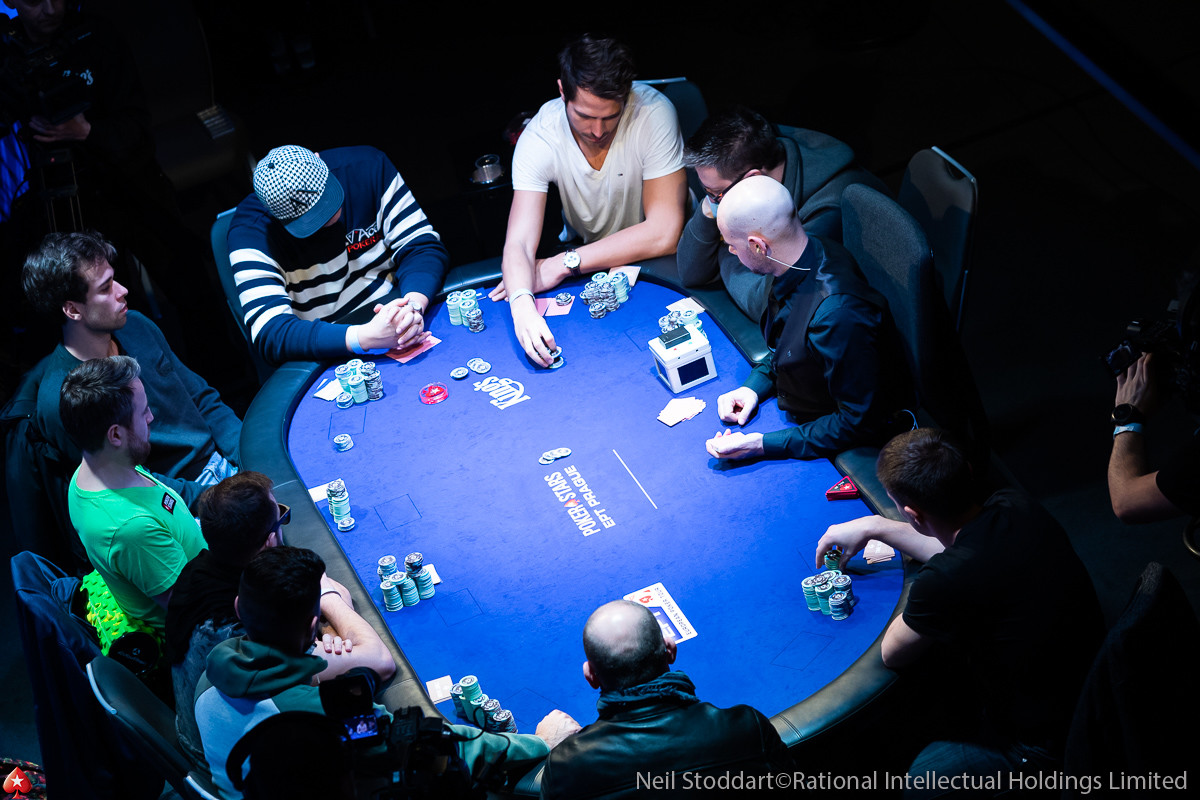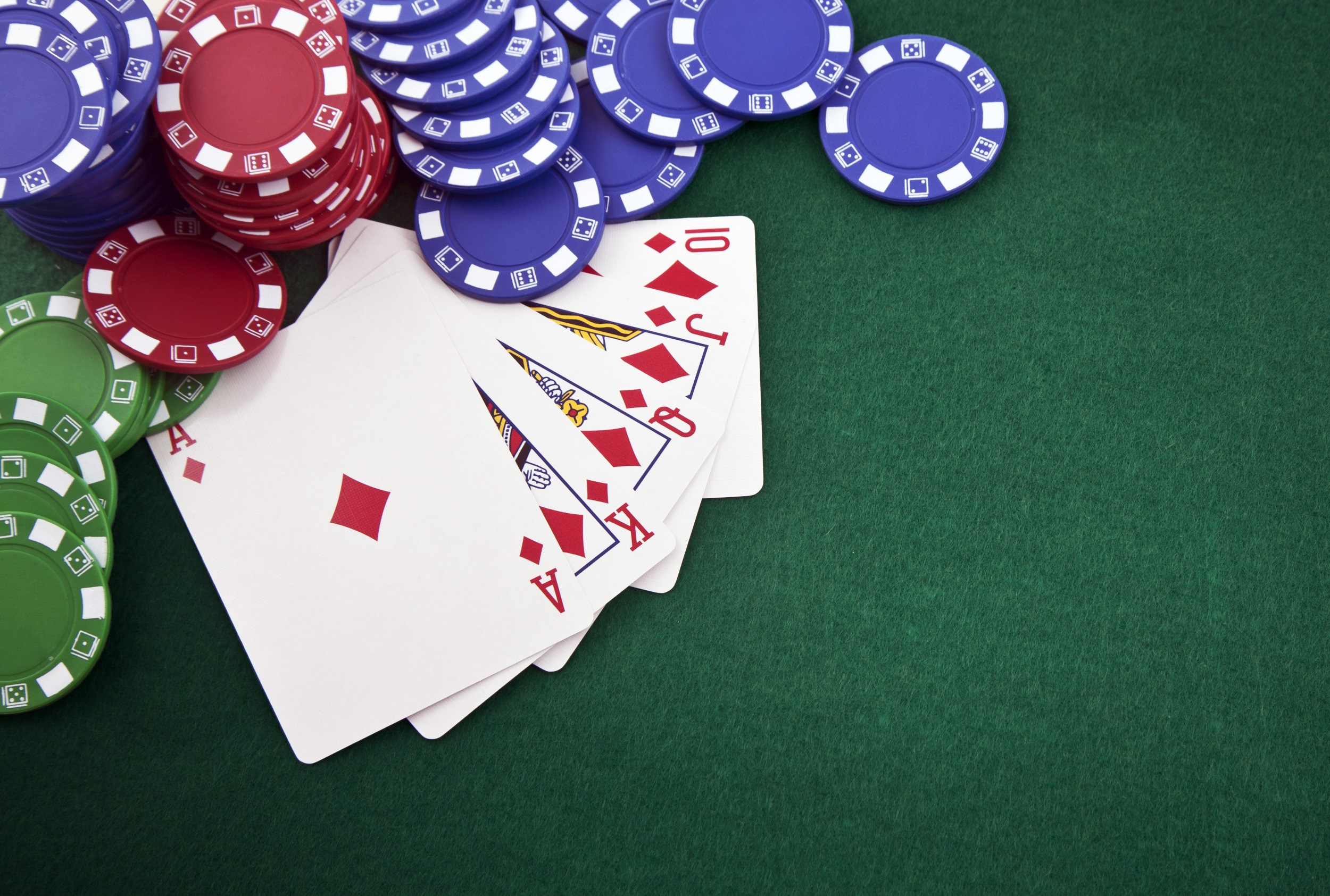Getting Good At Poker
Make lots of money. (Honestly, accept the fact that this is the most important reason, deep down in anyone’s heart why they would want to be great at poker. Sub-consciously, the proof of you being great at poker would be directly proportional to the amount of money you are making in due course, hence. 9 hours ago From the big blind you are getting good odds to continue against a single raise, however, it is difficult to defend profitably with as many hands as you can in another game such as Omaha eight-or. Everyone wants to be the best poker player they can be, but not everyone knows how to actually work on their game. Sometimes, it's not always fun to put in t.
You Can Become A Winning Poker Player

I usually keep the tone of articles here light, friendly and deliberately non-preachy… After all, just because someone is new to poker and wants some concepts explaining does not mean they are not intelligent and successful people!
Five Ways to Improve at Texas Hold 'Em Poker Know Your Position. When you're on the button, you're the last person to act in three out of the four betting. Concentrate on the Other Players. It's easy to get caught up in your hand and lose sight of the other. Getting staked in poker isn’t easy. If someone offers you a deal without asking you to provide a graph showing solid results or a list of credentials, chances are you’re getting scammed. The more successful the backer, the tougher it is to get backing.
This time it is different. This time I want to get some home-truths out there – address a recurring theme on poker forums, blogs and in chat-boxes which kind of bugs me.
The kind of questions I’m referring to are these:
- ‘I am playing great poker, so why can’t I win?’
- ‘How can I make money when so many donks are making bad calls and sucking out on me all the time?’
- ‘Poker site X must be rigged against me’
- ‘I’m a great player, just constantly unlucky’
- ‘Should I move up levels to where people understand and respect my raises?’
If you can identify with any of these questions then this article is for you.
90% Of Players Feel They Are In The Top 20%
Ok, the statistic is just my estimate, however the vast majority of poker players do think they are naturally talented, or somehow innately better than their peers. When evidence accumulates (they lose!) that, well, they might not be such a phenomenon after all several mental defenses come into play. You’ll tell yourself that you are good but unlucky, that the blame lies with ‘bad players’ who do not understand your skillful play and then keep getting lucky against you – or even that poker sites rig the games against you.
These defenses are all well and good. They explain your frustration and keep you believing that you’ll break through one day…
Except you won’t break through.
You need a change of mindset to do so.
These defenses hold the huge majority of players back. Once you get over them you can start to work on your game in a constructive way, to give yourself a real chance of breaking through.
Here are my 3 ‘core realizations’ which players need to make in order to start constructively working on their games. I’ll deal with each point below.
- – Poker is not rigged, and you are not the most unlucky player who ever lived.
- – If you can’t beat bad players then you will get crushed by strong players.
- – You are not some innate super-talent, you need to study and work hard on your game.

Realization #1 – Poker Not Rigged, You Are Not Exceptionally Unlucky
There have been billions of poker hands played online, even the smaller sites are in the 10’s of millions. These hands are tracked by the various tracking services and individually by millions of players using databases like Holdem Manager 2. You know what, the deal is random. Any perception you have otherwise is not supported by any evidence over large sample sizes. It is 2013, let us put this ‘rigged’ thing to bed once and for all!
Luck in poker is short term in nature. While a downswing can be brutal, the upswings will eventually compensate. What holds players back is blaming ‘bad luck’ as an excuse not to work on their game… the chance element evens out in the end, get over it.
Realization #2 – Too Many Donks Are Impossible To Beat
I know, I know, you read the strategy, studied the forums to see how the experts handle certain situations and played that hand damn ‘perfectly’. Then, *boom* some idiot who did not have a clue about solid poker strategy made a bad call and cost you your stack. This keeps happening again and again… and its getting to the point where you feel the only solution is to move up levels to where people understand your play and don’t make those stupid calls which end up costing you.
This thinking is extremely common, and deeply flawed.
First, players who make bad – as in negative expected value – calls are the easiest of all opponents to beat. Sure, they will stack you with some random hand occasionally, but you have a positive edge every time you play them. Over time you will accumulate money and they will lose it, period… all you need is to play as many hands as possible.
Secondly, poker strategy never works in a vacuum. It is never a case of ‘do x for $$$ every time’. The core of strategy is about playing against an individual opponent – if you are incapable of adjusting your strategy to exploit players who consistently make negative expectation plays of their own free will then you need to work on your game. Instead of thinking about the ‘best way to play hand XX in situation YY’ you should focus on the best way to exploit the weaknesses of players who make mistake ZZ.
If are not capable of understanding the adjustments needed to beat the worst players then those players who are capable of doing this will take your bankroll. They will see your tendencies and weaknesses and play in such a way as to exploit them, sometimes taking small edges repeatedly and sometimes attaching big leaks.
Newer readers, please – poker is about learning to spot and exploit the weaknesses of your opponents. No ‘bag of tricks’ will help you for long if you do not understand this!
Realization #3 – You Are Not Some Natural Talent
Sorry, I’d love to bring you the happy news that you are the next poker superstar – and that you need not work on your game along the way… unfortunately it just is not true. In fact, poker is tough, if you do not work hard on your game those people you label ‘lucky donks’ who have put in the hours will have an edge on you…
What is more this edge will only grow over time.
You see, the players who study their hand histories, locate and plug their leaks, go through areas with friends (virtual or real), read, watch videos and think about how they can maximize the value by changing their bet sizing in different situations (for example) are the ones who will show a profit over time.
The players who feel they know enough and simply log on and play will find themselves getting behind.
What is more, those who get a solid foundation through study will be best equipped to add new ideas and strategies to their games. Instead of an ‘trick’ they can integrate ideas into their solid understanding, knowing how and when to use the new idea to max advantage.
Luckily you can make fast improvements in this area by simply taking one hour of play from every 5 hours and using this for study instead. Or of course you could always blame bad luck!
Good Old Poker Game
Playing Great And Still Losing – You Can Become A Winner
I’ll end with some good news, you can become a winner – anyone of average intelligence + and a little motivation can beat online poker.
How far you go depends on how much effort you put in. Not just to education, but aspects like site / table selection, focus on the games and bankroll management too.
Once you get over the ‘excuses’ holding you back you can make the decision on whether to commit to the task of becoming a long-term winner, or relaxing and treating poker as a bit of fun – while enjoying the occasional win.
Plug For My SNG Course: If you are at the stage where you would like to build a bankroll, then please check out my free course ‘The $16 / Hour SNG Blueprint’. This will take you from novice to making $16+ per hour grinding Sit N Go tournaments over 4 parts. I wrote this to help build the audience for my site – and it continues to get fantastic feedback.
Related Article
Card Player Magazine, available in print and online, covers poker strategy, poker news, online and casino poker, and poker legislation. Sign up today for a digital subscription to access more than 800 magazine issues and get 26 new issues per year!
In a prior installment on Badeucey, we established a set of guidelines for the starting hands we should tend to play given that we were the first player to enter the pot. In this issue, the focus will be on what hands are playable when the pot has already been opened, and the factors that should be considered in order to determine if our holding is better played as a smooth-call or as a three-bet.
Pat Hands
Whenever you hold a playable pat hand, it is almost always in your best interest to reraise the opener and try to get the pot heads-up. A seven low with at a good three card underneath such as 2 3 5 6 7 increases the odds of scooping against a single opponent.
Some caution needs to be exercised with eight lows such as 2 5 6 7 8 and 3 45 6 8 where we essentially have no badugi hand. If we are up against an early position raiser, both of these hands should probably hit the muck.
This advice may seem overly tight, particularly with 3 4 5 6 8, however a solid player opening from early position will often either have a badugi or a very strong three-card badugi that they mostly plan to showdown unimproved. If our opponent is intent on going to the end regardless what happens in the hand, we are getting freerolled from the beginning.
The situation is different when the initial raiser originates from the cutoff or later position as this range will be weaker and not as showdown bound. In that circumstance, we should three-bet 3 4 5 6 8 in the hope that the pot is played heads-up and our opponent chooses to fold sometime before showdown.
One-Card Draws
Any made badugi that is an eight or lower should be reraised for both value and protection. If the raise comes from a steal position, reraising a rougher nine badugi such as 4 6 7 9 is also correct especially if they are loose and often drawing three. Since the underlying draw of 4 6 7 draw is quite rough, keeping the nine is probably best.
Holdings such as 2 5 6 9 can go either way. In straight Deuce-to-Seven Triple Draw we would always draw two in order to try and make stronger lows and any other nine we catch later on in the hand will help us in the same manner. However, in Badeucey discarding the 9 is forever eliminating one of our better badugi outs.
Therefore, with a hand like 2 5 6 9, we should tend to reraise and be flexible with our drawing decision depending on the remainder of the preflop action. If our reraise is successful in getting the pot heads-up we should probably keep the nine and draw one, and if it goes off multi-way we should opt to draw two.
When you hold very good one-card draws with a tri such as 2 3 5 7 or 2 3 4 8 where you plan to draw one, you also want to three-bet in the hopes of isolating your opponent. Even if we bump into a badugi, with premium draws to both sides your equity and playability is often quite good. In addition, we don’t want our reraising and drawing one range to be entirely comprised of badugis.
Three-Card Badugis (i.e. Two-Card Draws)
With three-card badugis, the decision between three-betting or just smooth-calling is often close. When making it we should take into account the opener’s position, your position, your hand, and the skill level of the players left to act behind you. For example, facing a somewhat tight early position opener with weak players in the blinds, flatting your entire three-card badugi range has merit in order to invite action players to enter the pot.
However, in most other situations it is usually best to reraise premium three-card badugis such as 2-3-5, 2-4-5, 3-4-5, 2-4-6, 2-3-7, and 2-4-7. There’s a value component to three-betting these hands in addition to increasing our scooping chances. In addition, as we discussed last issue, these hands effectively realize their equity relative to our opponent.
In particular, 3-4-5 gains tremendously getting the pot heads-up as it can win the badugi side unimproved, but can struggle to make strong lows due to potential straight draws. Hands such as 2-3-7 and 2-4-7 will not often win the badugi side unimproved, however, these holdings have strong two-way potential and three-betting them helps balance against doing so with only the lowest of our tri holdings.
Weaker three-card badugis should mostly be flatted and which hands are playable are a function of your opponent’s playing style, the position from which he opened, and your position. For example, if a tight player opens from first position and we are one seat over in the hijack we should fold a mediocre hand like 2-6-8.
While position helps, it’s hard to envision that our opponent is opening many worse hands thus we should not seek out an uphill battle with so many players left to act behind us. In this situation, the bottom of our continuing range would probably be holdings such as 3-4-6 and 2-4-8. These hands make stronger badugis than 2-6-8 and also have the potential to reduce our incomplete to a three-card four.
Blind Defense

From the big blind you are getting good odds to continue against a single raise, however, it is difficult to defend profitably with as many hands as you can in another game such as Omaha eight-or-better. In Omaha hi-lo, you can take a flop with a somewhat junky hand and have a villain’s A A 2 3 drawing nearly dead once those three cards come down. However, in Badeucey your rough draws will only make rough hands, thus when you are up against the very top of your opponent’s range no miracle can save you.
When an opponent opens from early position, we must respect that range and play somewhat tight. While we can probably defend with any three-card seven or a smooth eight we must resist the temptation to play rougher holdings such as 3 7 8 that have reverse implied odds.
Cutoff and button opens are weaker, thus given the pot odds we can mostly defend any holding that we would have opened from those positions had the situation been reversed. For example, we can defend un-suited 2-3, 2-4, 2-5, and 2-7 holdings as well as a two-suited hand such as 2 3 7. Three-card badugis such as 5-6-8 and 3-7-8 are borderline plays; calling a button raise is fine but it is probably best to fold them against a cutoff open.

How To Be Better At Poker
It may not seem like we are defending a lot of hands but the responsibility is also borne by the small blind to ensure that an over aggressive late position opener will not automatically profit. Against a very loose raiser the best response is to punish them with more three-bets with your good hands as opposed to loosening up your calling standards significantly. In addition, someone playing too many hands from late position will often get punished later on in the hand as they are usually playing rough draws with reverse implied odds.
In Badeucey, getting too far out of line before the first draw will often cost you money in the later rounds. A solid foundation of starting holdings is required to successfully navigate the later streets. ♠
Kevin Haney is a former actuary of MetLife but left the corporate job to focus on his passions for poker and fitness. He is co-owner of Elite Fitness Club in Oceanport, NJ and is a certified personal trainer. With regards to poker he got his start way back in 2003 and particularly enjoys taking new players interested in mixed games under his wing and quickly making them proficient in all variants. His new mixed-games website Counting Outs is a great starting resource for a plethora of games ranging from the traditional to the exotic. He can be reached at haneyk612@gmail.com.